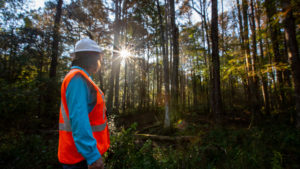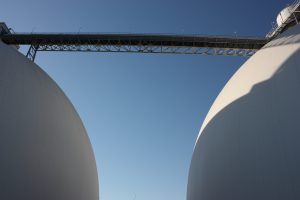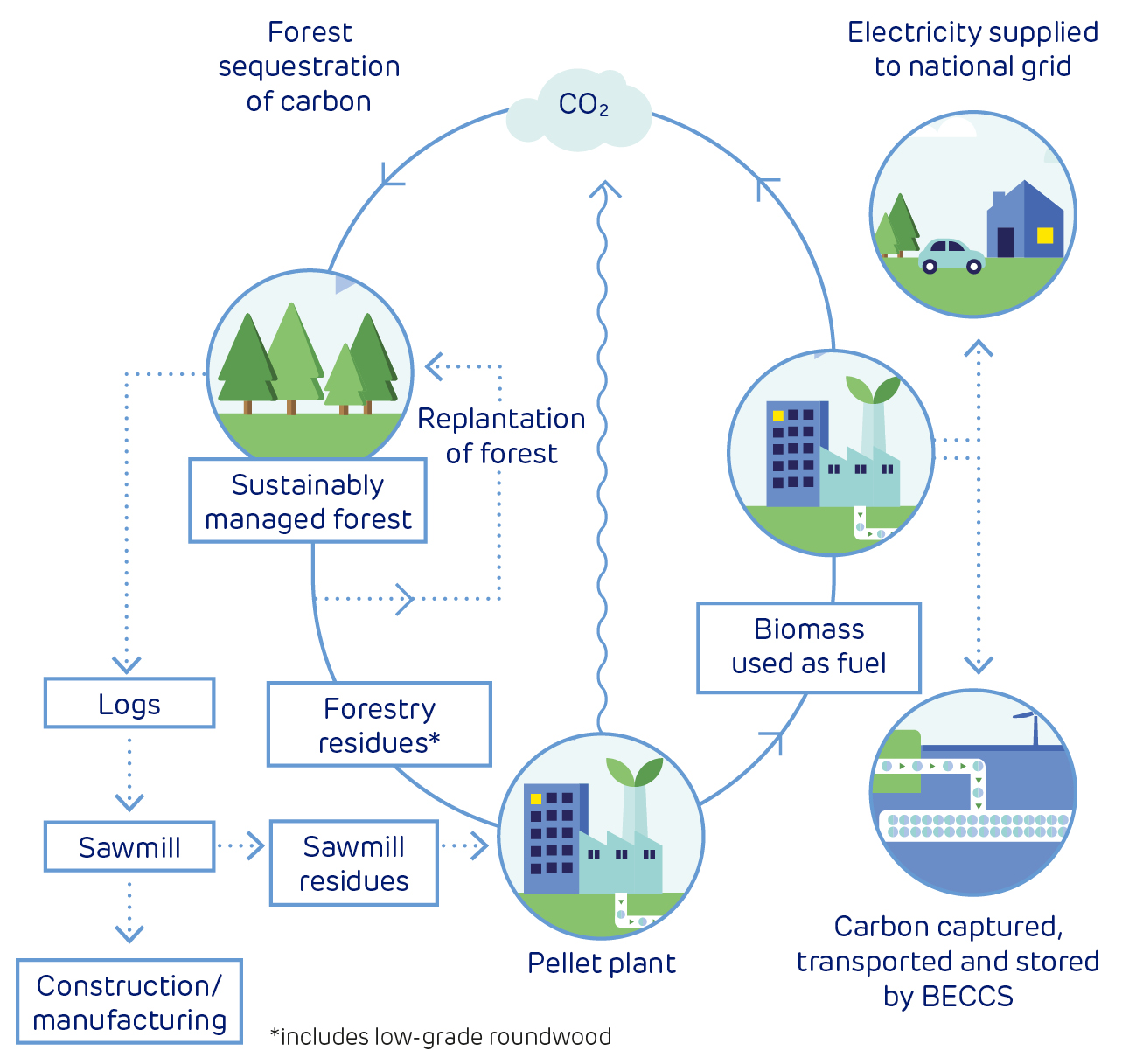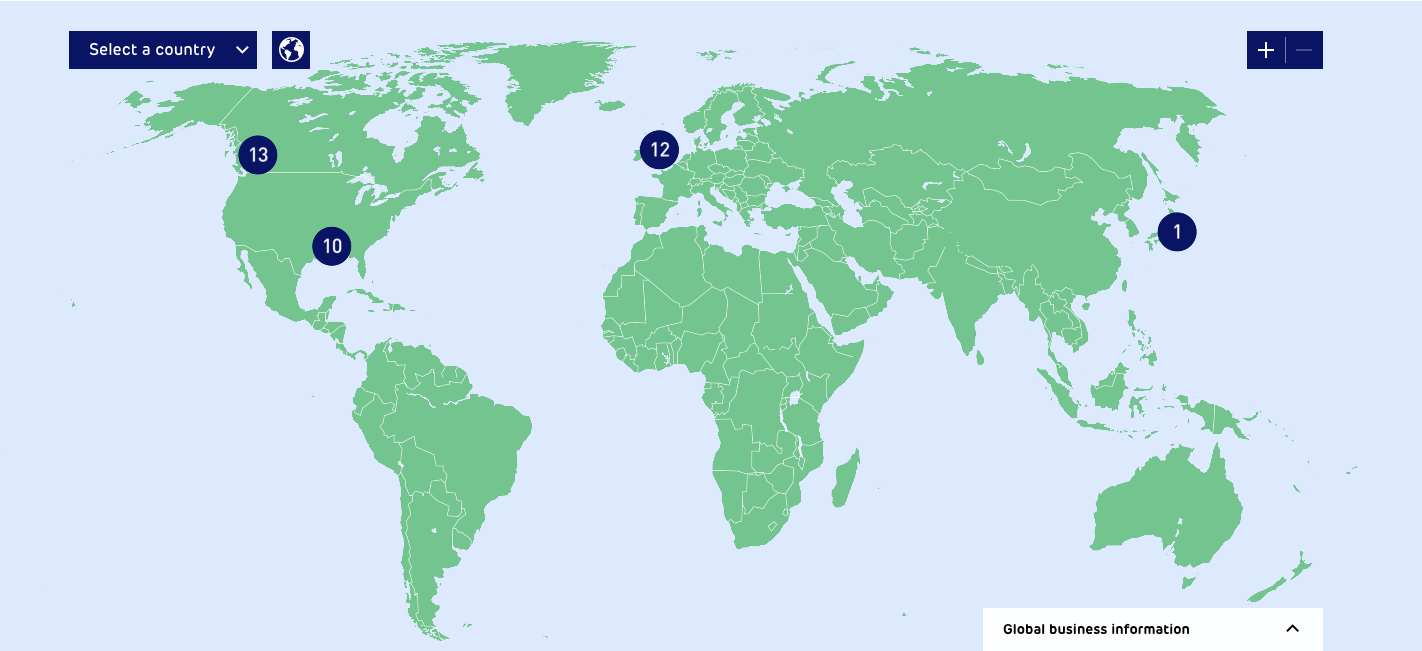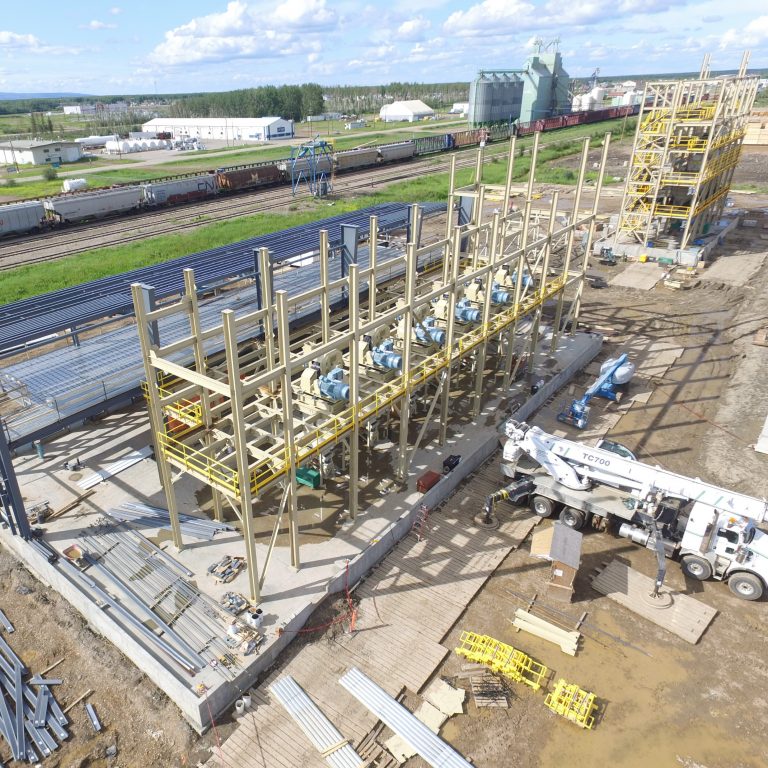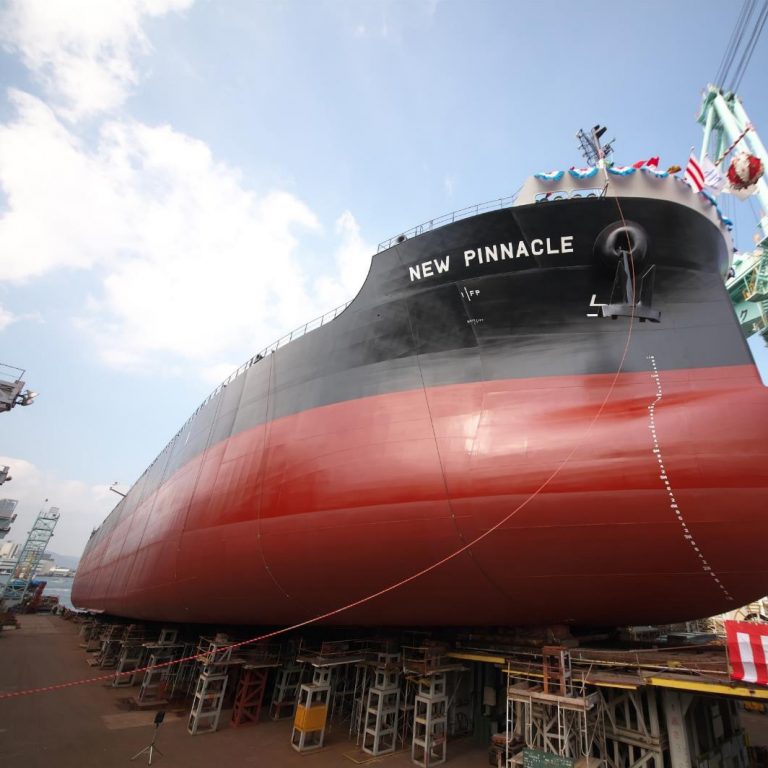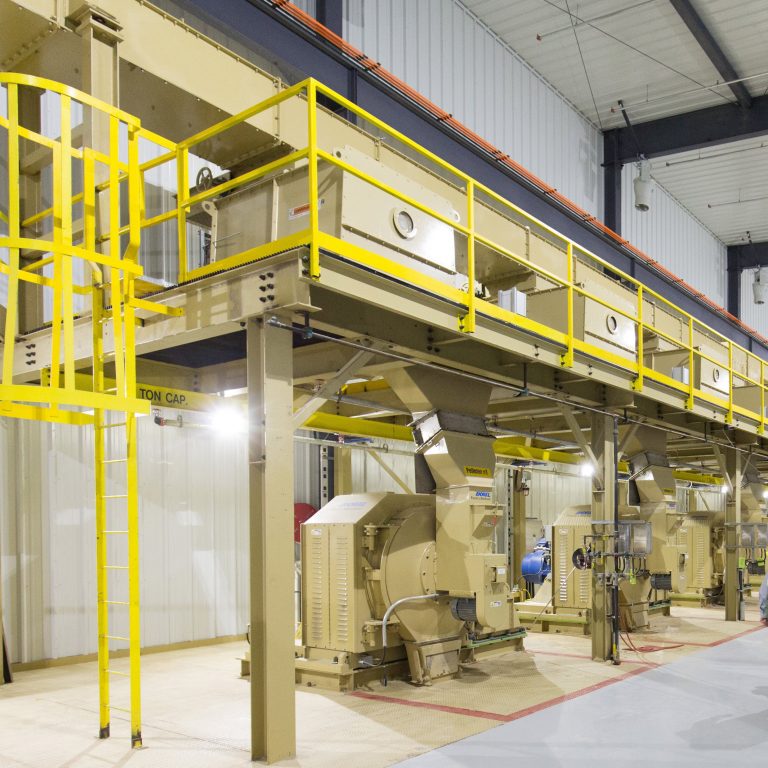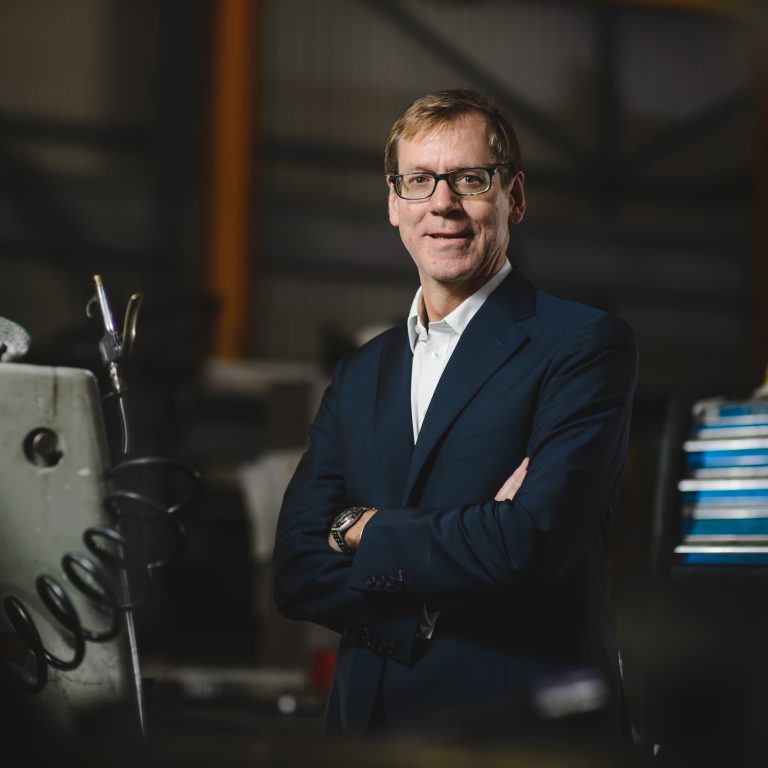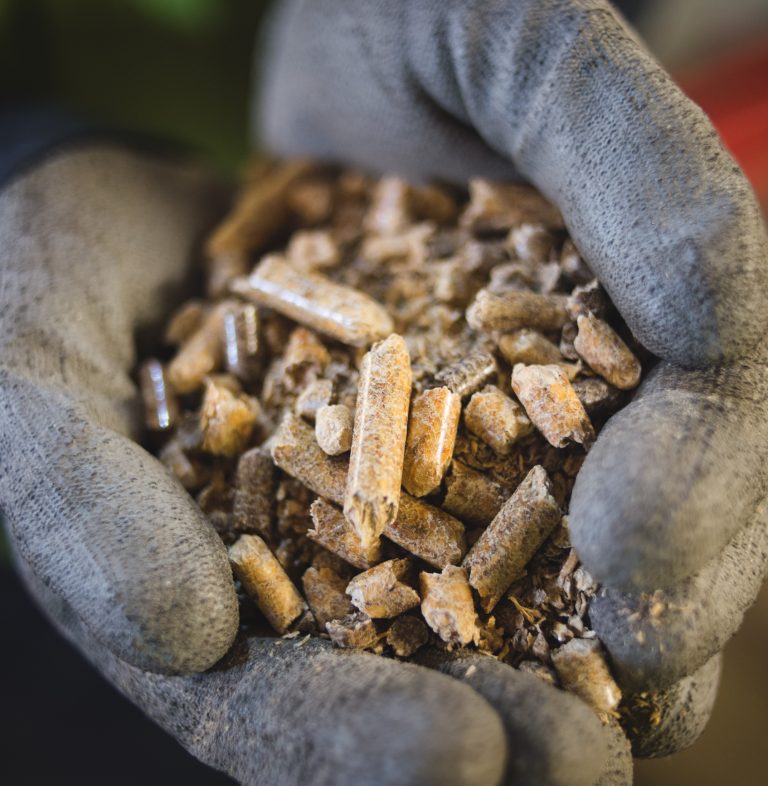Drax is enabling a zero carbon, lower cost energy future
About Drax
Drax Group is a renewable energy company engaged in renewable power generation, the production of sustainable biomass and the sale of renewable electricity to businesses.
Drax operates a generation portfolio of sustainable biomass, hydro-electric and pumped hydro storage assets across four sites in England and Scotland. It is the UK’s largest source of renewable electricity. The company also operates a global bioenergy supply business with manufacturing facilities at 13 sites in the United States and Canada, producing compressed wood pellets for its own use and for customers in Europe and Asia.
The Group employs 3,400 people in the UK and North America.
Our ambition:
Our ambition is to become carbon negative by 2030. This means that we will be removing more carbon dioxide from the atmosphere than we produce throughout our direct business operations globally – creating a carbon negative company.
Our strategic aims
A global leader in sustainable biomass pellets
Sustainably sourced biomass is a renewable, low carbon source of energy and a key element in the road to net zero. This is at the heart of our purpose. Sustainable biomass can play an important role in supporting forest health. Well-managed forests are effective at absorbing and storing carbon dioxide (CO2) from the atmosphere.
We are committed to sourcing sustainable biomass that achieves both decarbonisation and positive forest outcomes. Drax forms part of a wider forest industry where forest management and felling is used primarily for producing material for construction and manufacturing. The material we use to make pellets includes sawmill and forest residuals, and low-grade roundwood – material of a lower grade which is unsuitable for use in a sawmill. Using these materials can also help prevent the spread of fire, pests, and disease by reducing stand density to healthier levels and removing deadwood which can attract insects and pathogens.
By diligent sourcing of these materials to make pellets, our activity can help forest owners, and the larger forest industry, make the best use of forests, achieving both decarbonisation and positive forest outcomes.
A global leader in carbon removals
Alongside carbon emission reductions, carbon removal technologies are needed to remove carbon from the atmosphere. With an effective carbon removals policy and the right investment framework from the UK Government, we could deploy bioenergy with carbon capture and storage (BECCS) on two of our existing biomass generating units in the UK to remove 8Mt of CO2 each year by 2030. And we are targeting 12Mt of carbon removals globally by 2030.
Find out more about BECCS
A UK leader in dispatchable, renewable power
Moving away from fossil fuels means building an electricity system that is primarily based on renewables. Supporting wind and solar, by providing electricity at times of low sunlight or wind levels, will require flexible sources of generation, such as biomass. Our pumped storage and run-of-river hydro stations also help to reinforce the UK’s renewable energy mix.
The dispatchable generating assets at Drax remain critical to providing UK power system stability and security as the war in Ukraine continues to put global energy markets under considerable pressure. Over the 2022-23 winter, our assets generated renewable power when the country needed it most. This has helped the UK to provide energy to consumers and businesses while maintaining its target of net zero by 2050.
Our integrated flexible and renewable value chain
Our activities are underpinned by safety, sustainability, operational excellence and expertise in our markets.
We operate across three principal areas of activity:
Pellet production
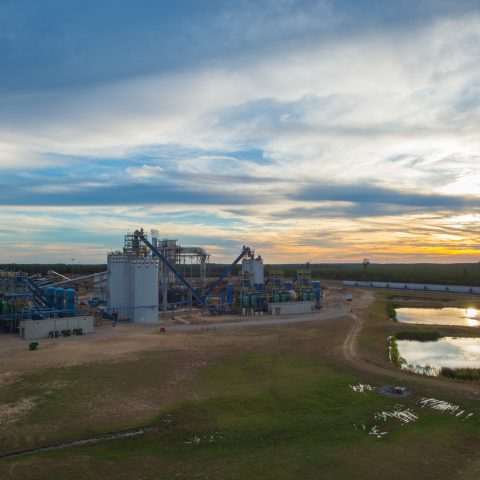
Drax’s Morehouse BioEnergy compressed wood pellet plant in northern Louisiana
The material we use to make pellets includes sawmill and forest residuals, and low-grade roundwood, material of a lower grade which is unsuitable for use in a sawmill.
They provide a sustainable, low carbon fuel source that can be safely and efficiently delivered through our global supply chain.
The forests we source our biomass from are managed in accordance with standards designed to support the health and growth of these forests over the long term. Based in the US south and in Western Canada, we have 18 operational and development sites with nameplate capacity of around 5Mt once expansions are complete.
Adjusted EBITDA |
Pellets produced |
Production cost |
£134m |
3.9Mt |
$152/t |
| (2021: £86m) | (2021: 3.1Mt) | (2021: $143/t) |
Generation:
Our portfolio of flexible, low-carbon and renewable UK power assets – biomass, hydro, and pumped storage generation – provides dispatchable, renewable power and system support services to the electricity grid.
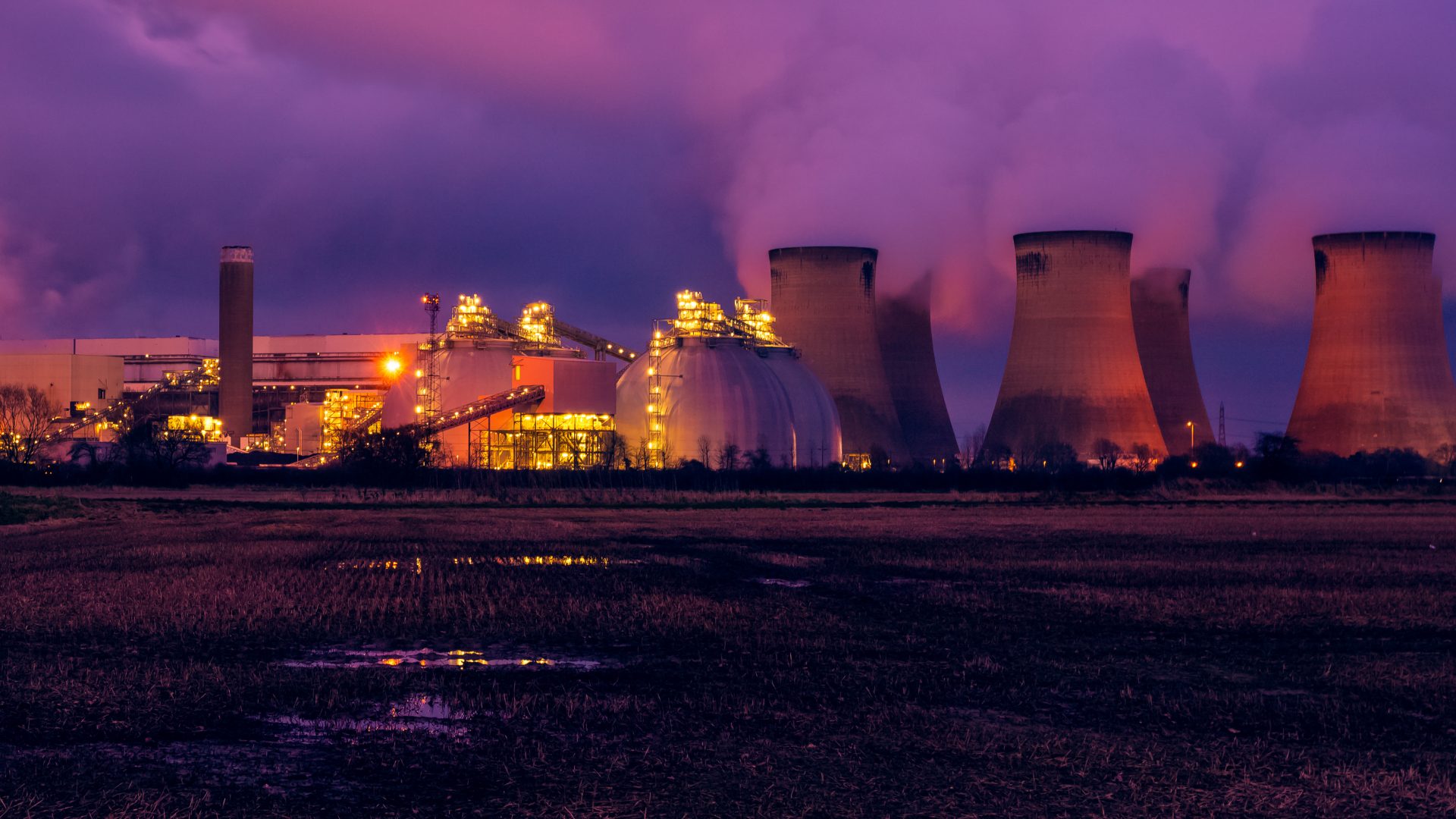
Our dispatchable power – which can be ramped up and down, or switched on or off, at short notice to provide a flexible response to changes in electricity demand – has a vital role to play in enabling the transition to more renewable energy and a more flexible energy system: generating renewable electricity when the sun doesn’t shine and the wind doesn’t blow.
We are the UK’s largest source of renewable power by output, and Drax Power Station is the UK’s largest single source of renewable electricity by output. Our portfolio provides long-term earnings stability and opportunities to optimise returns from the transition to a low-carbon economy.
We are developing options for BECCS at Drax Power Station in the UK and exploring options for global BECCS.
Adjusted EBITDA |
Percentage of total UK renewable electricity generated |
|
£696m |
11% |
|
| (2021: £372m) | (2021: 12%) |
Customers
Our Customers business is principally focused on renewable electricity sales to industrial and corporate customers in the UK.
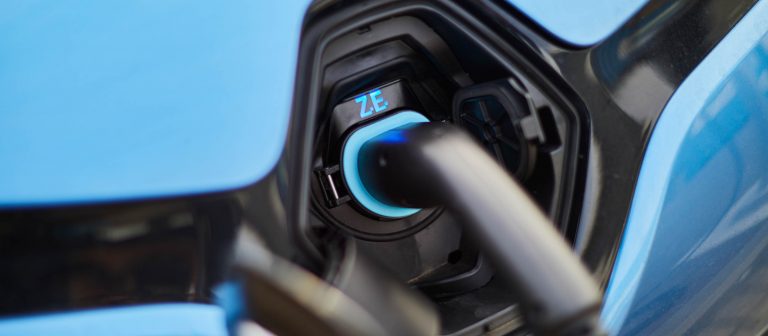
Electric vehicle charging at Drax in Ipswich
The business also offers non-generation system support and energy management services, such as the provision of decarbonisation services, including vehicle fleet electrification. It also provides a route to market for many smaller embedded renewable generators.
Adjusted EBITDA |
||
£26m |
||
| (2020: £6m) |

